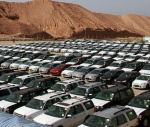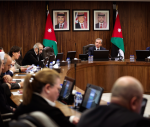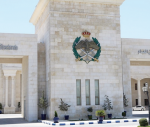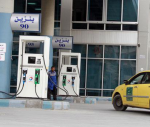You are here
Tackling cyber assassins
Jun 28,2018 - Last updated at Jun 28,2018
It goes without saying that everything has its pros and cons, and that healthy societies are those that maximise the former and minimise the latter.
This general principle applies, among many other things, to social media specifically and electronic media more generally.
Not a long time ago, less than two decades in fact, means of public expression for most individuals were limited.
Those who were able to make their voices heard in print media and television were the privileged few: columnists, editorialists, reporters, writers, journalists, TV presenters, talkshow hosts, government officials and those few citizens who were lucky to be interviewed or quoted in print newspapers and magazines, or hosted on television programmes.
And, as far as our part of the world was concerned, these media outlets were almost exclusively governmental or semi-governmental.
In 1996 I moderated a weekly talk show called “Challenges” for channel 2 of Jordan Television (which was the only television in the country), to which I invited six to ten people each week to discuss an issue. Several people felt the programme to be a breath of fresh air as I generally invited “ordinary” people, i.e. people who are not government officials or familiar faces on the media scene, who had no other formal venue of expressing themselves in public.
My participants were students, teachers, university professors, journalists, artists, businesspersons, housewives, social volunteers, public servants, and — of course — some government officials.
In one memorable episode, I hosted a number of students and teachers to debate issues directly with the then minister of education.
This was almost unheard of.
Up until that moment in history, i.e. in 1996, most people had no access whatsoever to any press or media outlet (print or electronic), or to any formal venue of expression.
This is why they largely expressed themselves in personal diaries, in letters to friends, and in discussions in informal settings. And that was basically it.
In other words, most people were unheard and unheard of, and perhaps hence the expression “the silent majority”.
My two-year talk show ended in 1998, and since then venues of public expression for all people have exponentially multiplied. As a result of the information and technology “revolution” almost everyone in our part of the world has at least one or two venues to which they have access 24-7: mobile phone, computer, and/or tablet; and an account on Facebook, Twitter, linked-in, Instagram, Snapchat, WhatsApp, etc.
Two important, and positive, shifts happened: governmental monopoly and control of the press and the media came to an end, with the advent of so many private press and media outlets, both print and electronic, but more of the latter; and people have started not only having easy and prompt access to multiple venues of expression, but becoming more involved and vocal.
What might be termed as liberation and democratisation of expression is a great blessing.
Freedom of expression is a right for all people. And it is a great asset for any society when its members become both involved and vocal, and I believe that these days we have witnessed the demise of the concept of the “silent majority”.
When the majority is involved, engaged, and vocal; when people express their opinions on issues; when individuals discuss, debate, criticize, disagree, object and give opposite views and alternatives, this is very positive and constructive.
Intellectual capital is an immense asset, and “wisdom of the crowd” is a mine of gold.
In many ways, we in this society feel privileged and blessed to have witnessed a media and expression revolution.
Nevertheless, like everything else in life, there can be negative implications, there can be a downside, when people misuse or abuse venues and tools.
Cars are a blessing. Mobile phones are a blessing. Hummus and falafel are a blessing.
But if we drive recklessly, cars can become death machines; if we use mobile phones irresponsibly, we annoy other people and drain our budgets; and if we are gluttonous, hummus and falafel can cause health problems.
The same is true with the new venues of expression. If they are used excessively, unwisely and irresponsibly, they become either a waste of time, distortive, counterproductive or even subversive.
“Subversive” is the problem here.
Ultimately, we can live with a bit or even a great deal of trivial, superficial, silly, or even stupid discourse. This is a small price we have to pay when we read a huge bulk of material to arrive at the little that is useful and precious.
But we cannot and should not live with, tolerate, and permit deliberate distortion, falsification of facts, promotion of lies and character assassination.
And unfortunately, there is a lot of that these days.
In any society, there are perverse opportunists, swindlers, pirates, outlaws, porno traders, rapists, burglars, embezzlers, crooks and assassins.
These exist in our midst literally, and generally function in the dark, so as not to be seen and caught.
And they exist in our cyber world.
Unfortunately, the electronic and social media have given these deviant people also a venue, and a very effective one: to promote their falsehoods, to distort, to settle accounts with people they disagree with or dislike and to assassinate character.
Examples abound. If you inspect Al-Rai newspaper edition issued last Monday, you find three major pieces on the issue.
The first is an editorial, entitled “Assassination at a Click”, warning against the phenomenon we are describing here. The second is a feature story on how rumour, hearsay and distortion are harming society “economically and socially”. And the third is a report about the prime minister’s visit to the Anti-Corruption Commission, in which he reiterated his commitment to fighting corruption, but warned against assassins who target innocent and successful people.
Increasingly, social and electronic media have become a challenge and a problem in our society, even a threat, and something needs to be done to guard against and curb this negative, subversive dimension of it.
Clearly, several simultaneous steps need to be taken to address this real threat. We understand, of course, that we have a reliable judicial system which takes care of all grievances, and we know that there is an efficient unit at the Public Security Department, which monitors and helps people with fighting cybercrime. But more needs to be done.
Fist, at the level of awareness.
We at the University of Jordan have recently introduced several courses to help students to use social and electronic media constructively and effectively, and to enable them to guard against subversive material. We have a new course on effective communication skills, one on critical thinking, and one on social media.
Something similar needs to be done at the Ministry of Education and other institutions entrusted with building awareness.
Second, at the punitive level. The government has just submitted a draft law on electronic crime to the parliament. This is a golden opportunity to address this challenge, and laws need to be toughened against violators.
Jordan has weathered the disastrous “Arab-spring” storm very successfully and ably, during which literal assassins have caused so much havoc in a number of otherwise stable and prosperous Arab countries. We need to do all in our power to weather the nasty dimension of the social media, cyber storm equally ably and successful, in which cyber assassins are roaming freely and causing so much damage.
Just as our forces are tracking, stopping, arresting and referring drug traffickers and car thieves to courts, they need to do the same to cyber character assassins.













